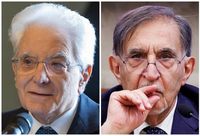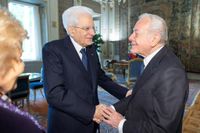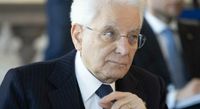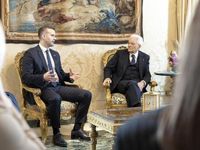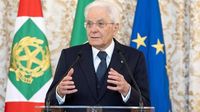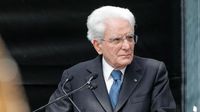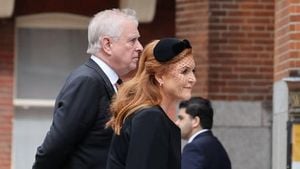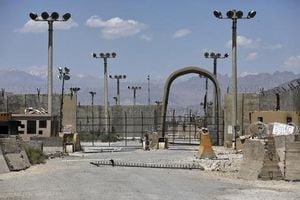Sergio Mattarella, the President of the Republic of Italy, was admitted to the Santo Spirito hospital in Rome on April 15, 2025, for the implantation of a pacemaker. The procedure was planned and has raised no concerns about his health. According to sources from the Quirinale, Mattarella was engaged in his normal activities throughout the day before his hospitalization.
On the morning of April 15, Mattarella met with Gianni Letta and later welcomed Milojko Spajić, the Prime Minister of Montenegro, at the Quirinale in the late afternoon. This routine engagement was indicative of his ongoing commitment to his duties as head of state, even on the day of his scheduled procedure.
As he approached his 84th birthday in July, Mattarella's health is of keen interest to the public and political figures alike. The pacemaker implantation procedure, performed by Dr. Roberto Ricci, followed a routine coronarography, which is a common diagnostic test to assess coronary artery health. Reports indicate that his condition remains stable, and there are no immediate concerns regarding his recovery.
Political leaders from across the spectrum have expressed their support and well-wishes for a speedy recovery. Ignazio La Russa, the President of the Senate, took to social media to say, "Forza Presidente, torna presto. Ti aspettiamo," which translates to "Come on, President, get well soon. We are waiting for you." Likewise, Giorgia Meloni, the Prime Minister, emphasized that "Italy awaits him soon, with the strength and dedication of always."
Other political figures, including Lorenzo Fontana, the President of the Chamber of Deputies, and Carlo Calenda, leader of the Azione party, also sent messages of encouragement. Fontana expressed his heartfelt support, stating, "I express my deepest sympathy to President Mattarella. I wish him a sincere recovery." Calenda echoed these sentiments, wishing him a prompt return to health on behalf of the Azione community.
The cancellation of several upcoming events from Mattarella's agenda has been noted, including a meeting scheduled for April 16 with the winners of the "Premi Leonardo" for 2025 and student scholarship recipients. However, the next commitment on his calendar is set for April 23, when he is expected to meet with representatives of the Combatant and Arms Associations to commemorate the 80th anniversary of the Liberation.
Amidst this health-related news, there has been a focus on the constitutional implications if Mattarella were to be unable to fulfill his presidential duties for a prolonged period. According to Article 86 of the Italian Constitution, if the President of the Republic is unable to perform his functions, the powers are transferred to the President of the Senate. In this scenario, La Russa would assume those responsibilities, although it is expected that such a transition would be limited to essential functions only.
Historically, the practice has varied regarding how long a president's absence constitutes a temporary inability. For instance, during the presidency of Sandro Pertini, it became customary for the President of the Senate to take over duties for trips exceeding one week. However, in March 2025, when Mattarella traveled to Japan for a week, La Russa did not assume his functions temporarily.
In light of the current situation, it appears that Mattarella's hospital stay is not expected to interfere significantly with his presidential duties. Medical sources have indicated that he is likely to recover quickly, and there is hope that he may return to the Quirinale as early as the following day.
As the nation awaits further updates on his health, Mattarella's proactive approach to his responsibilities has been noted, with many praising his dedication to his role as the guardian of Italy's Constitution. His workload is substantial, involving the signing of approximately 20,000 decrees annually, along with numerous public engagements and international travels.
In a recent statement, Mattarella signed the "legge Morandi," which addresses compensation for victims of the Genoa tragedy, demonstrating his ongoing commitment to pressing national issues even on the day of his hospitalization. As he navigates this health challenge, the support from across Italy's political landscape underscores the respect he commands as a unifying figure in the country.
Ultimately, the focus remains on Mattarella's swift recovery and return to his duties. The political community's response has been overwhelmingly positive, reflecting a shared interest in his well-being and the stability of Italy's leadership during this time.
